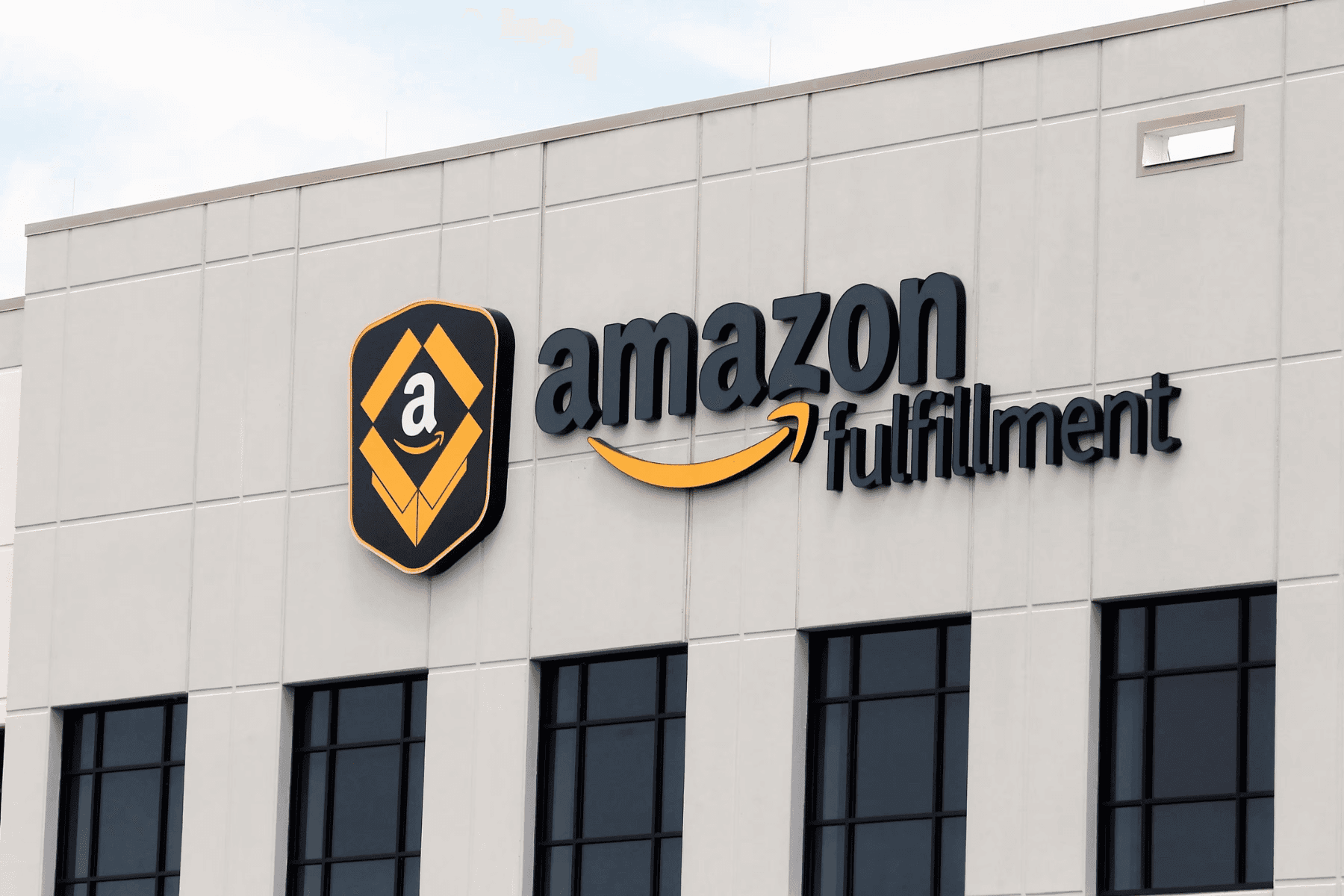Amazon’s Fulfillment by Amazon FBA program is introducing a series of fee adjustments starting April 15, 2024, aimed at optimizing seller experiences and aligning with sustainability goals. These changes include adjustments to FBA fulfillment fees, inventory storage fees, and the introduction of new fees related to inventory management and product returns.
FBA Fulfillment Fee Adjustments
For standard-sized products, Amazon will reduce FBA fulfillment fee rates by $0.20 per unit, while for Large Bulky-sized products, the reduction will be $0.61 per unit. Additionally, products priced below $10 will continue to enjoy an additional $0.77 discount on per-unit fees. To support products shipped in their original packaging, Amazon will offer fulfillment fee discounts ranging from $0.04 to $1.32, depending on item size and weight, for eligible products in the Ships in Product Packaging (SIPP) program.
Inventory Storage and Management Fees
To encourage sellers to maintain optimal inventory levels, Amazon will introduce a low-inventory-level fee for standard-sized products. This fee is designed to motivate sellers to keep sufficient inventory, thereby enhancing Amazon’s ability to distribute products efficiently across its network. Sellers can avoid this fee by maintaining more than four weeks of inventory relative to sales. Additionally, non-peak monthly storage fees for standard-size products will be reduced by $0.09 per cubic foot.
New Fee Introductions and Adjustments
The FBA program will expand the returns processing fee to include products with the highest return rates, excluding apparel and shoes, starting June 1, 2024. This adjustment aims to address operational costs and reduce waste. Amazon is also adjusting its US Multi-Channel Fulfillment (MCF) fees and size tiers, with an average increase of 3.5% across all delivery speed options.
Moreover, Amazon will close the Small and Light program on August 29, leading up to these changes. The new FBA rates for low-price products will be approximately $0.77 lower per item compared to the current rates, benefiting sellers with faster fulfillment speeds for items priced below $10.
Impact on 3PLs and FBA Prep Centers
The upcoming adjustments to Amazon’s Fulfillment by Amazon FBA fees and policies, particularly those relating to fulfillment, inventory management, and returns processing, are poised to have significant implications for third-party logistics (3PL) providers that specialize in FBA prep services for sellers. These changes could influence the operational dynamics, cost structures, and service offerings of 3PLs in several ways.
Operational Efficiency and Cost Management
With the reduction in FBA fulfillment fees for standard and large bulky-sized products, 3PLs might find themselves in a position where their cost-effectiveness and value proposition to FBA sellers become more critical. These providers will need to enhance their operational efficiency to maintain or improve their margins while possibly passing on the benefits of these fee reductions to their clients. Efficient inventory management and preparation that align with Amazon’s new fee structure could become a key competitive advantage for 3PLs.
Inventory Management Services
The introduction of a low-inventory-level fee by Amazon puts a premium on sophisticated inventory management. 3PLs that offer FBA-prep services will need to integrate more advanced inventory forecasting and replenishment strategies to help their clients avoid these fees. By providing value-added services that ensure sellers maintain healthy inventory levels relative to sales, 3PLs can position themselves as indispensable partners to FBA sellers. This could lead to an expansion of services beyond mere logistics, encompassing inventory strategy consultancy and optimization.
Adaptation to Returns Processing Fee Expansion
The expansion of the returns processing fee to include products with high return rates highlights the importance of quality control and accurate product listings. 3PLs could expand their service offerings to include more robust quality checks, product inspections, and even assistance with optimizing product listings and packaging to reduce return rates. By helping sellers minimize the factors that lead to returns, 3PLs can add another layer of value, assisting sellers not only with logistics but also with maintaining product quality and customer satisfaction.
Strategic Partnerships and Consultancy
The combined effect of Amazon FBA fee changes may encourage 3PLs to evolve from purely operational partners to strategic consultants for FBA sellers. This evolution involves advising on how to navigate Amazon’s policies, optimize for fee reductions, and avoid penalties. Additionally, 3PLs may find opportunities in educating sellers on the importance of sustainable practices, packaging optimization, and efficient logistics planning to align with Amazon’s sustainability goals and the Ships in Product Packaging (SIPP) program benefits.
A Closer Look at the New FBA Fees and How They Could Impact Your Business
Amazon FBA services allow you to leverage Amazon’s market authority and global reach. As an Amazon seller, however, tracking FBA fees is crucial to protecting your bottom line. FBA fees impact your distribution costs, which means they should always come into play when you make storage, production, and pricing decisions. Let’s take a closer look at the key FBA fee changes and how they could impact you:
1. Monthly Storage Fees
Amazon charges sellers a monthly storage fee to store inventory in fulfillment centers. Starting April 1, 2024, monthly storage fees for off-peak months (January to September) fell by $0.09 per cubic foot. This change only applies to standard-size products, and large bulky and extra-large products will cost the same to store in Amazon’s fulfillment centers. The fee reduction, which was first reflected in May 2024, applies to storage beginning in April 2024.
2. Storage Utilization Surcharge
Also, starting April 1, 2024, Amazon expanded the scope of storage utilization surcharges, introducing more detailed fee tiers. The surcharge now impacts Professional sellers with an over 22-week storage utilization ratio and will first be reflected in May 2024 for storage in April 2024. Inventory aged between 0 and 30 days will not be subject to the surcharge. Starting June 1, 2024, Amazon will also offer a surcharge waiver for products that Amazon Warehousing and Distribution auto-replenishes.
3. Aged Inventory Surcharge
Every 15th of the month, Amazon performs inventory cleanups, recording all products that have remained in fulfillment centers for 181 days or longer. These items are usually charged to the seller as an aged inventory surcharge, depending on how long they have been stored.
Starting February 15, 2024, Amazon adjusted this surcharge, specifically targeting products that have been in stores for between 271 and 365 days. These products will receive higher fees, with products exceeding 365 days in storage receiving zero charges. There will also be no surcharge for inventory stored at fulfillment centers between 181 and 270 days.
4. Referral Fees
Referral fees are the commission Amazon receives when an item is sold on its platform. The fee, often a flat 15 percent rate, is usually charged from your Amazon account after a sale. Starting January 15, 2024, Amazon reduced this fee for apparel products priced below $20. The referral fee for items priced below $15 is now 5% (from 17%), and for products between $15 and $20 is now 10%.
5. Low-Inventory-Level Fees
Effective April 1, 2024, Amazon will charge a fee for low inventory. The charges apply to standard-size products where inventory is consistently 28 days lower than historical demand (or historical days of supply). The fee will only be charged when the 28-day supply threshold is unmet in the short term (30 days) and long term (90 days).
While the low-inventory-level fee went into effect on April 1, Amazon has provided a transitional period, so fees incurred between April 1 and April 30 will be credited back to the seller in May.
6. Inbound Placement Fees
Amazon charges inbound placement fees to reflect the cost of distributing inventory to fulfillment centers located closer to customers. If you send inventory to one inbound location, Amazon will charge you a fee to distribute the products across its networks. You can reduce or eliminate this fee by sending the inventory to multiple locations yourself. Typically, the fee reduction depends on the number of inbound locations you ship the inventory to. Effective March 1, 2024, Amazon offers an average $0.20 fee reduction on fees for standard-size items and $0.61 for Large Bulky products. The change went into effect on April 15.
Updated Programs and Services
Amazon has also introduced several new programs and services that could help Amazon sellers improve efficiency and lower operating costs. They include:
FBA New Selection Program
The FBA New Selection program targets non-branded and branded ASINs, offering rebates, free liquidation of unproductive inventory, free return processing, and free monthly storage for limited periods. Amazon will use eligibility criteria to assess existing sellers for fee waivers, and new sellers will be enrolled automatically if they create a shipment within 90 days of their first ASIN listing.
Ships in Product Packaging
Amazon has lowered fees for products certified as SIPP (shipped to customers in original packaging). SIPP-certified products will receive lower fulfillment fees per certified unit.
Impacts on Amazon Sellers – How Can You Protect Your Bottom Line?
Amazon is presenting the new FBA fee changes as geared toward improving efficiency. And while they do, Amazon is also a business that must protect its bottom line. This means that some fees will rise as others decrease, and a sustained strategy on the part of Amazon sellers could lead to lower profit margins. Some proactive ways you can respond to these updates include:
Reevaluating Your Pricing and Storage Strategy: Consider and factor all the FBA price changes into your pricing strategy to ensure your business is still profitable.
Utilizing FBA Programs: Amazon has introduced new programs and incentives, such as free monthly storage, rebates, and the Ships in Product Packaging (SIPP) Program. Evaluate which perks best fit your business and utilize them to enjoy discounted FBA fees.
Practicing Proper Inventory Management: The revised fees for removing inventory from Amazon, overstocking, and low inventory could lower your returns. Strategize your inventory management process to avoid removals and extra fees. Also, maintain at least a 4-week inventory supply to avoid the low inventory levels fee.
Investing in FBA Prep Services: FBA Prep services can help streamline your storage and product delivery, allowing you to save on multiple Amazon FBA fees and raise your profit margin.
As Amazon continues to update its FBA fees and policies, the ripple effects on the ecosystem of 3PLs providing FBA-prep services are significant. These providers will need to adapt by enhancing their operational efficiencies, expanding their service offerings, and possibly redefining their roles in the value chain from operational support to strategic partnership. The ability to adapt quickly and effectively to these changes will likely determine the success of 3PLs in the evolving landscape of Amazon FBA selling.
You can view the full details on Amazon’s Selling Partners, in addition to Amazon Seller Central.
Protect Your Bottom Line Amidst These Changes – Enlist Snapl FBA Prep Services Today
Staying on top of FBA fee changes can help Amazon sellers maintain profitability, compete favorably on the platform, and manage costs. While many of the fees set to change in 2024 are reductions, some are price hikes that could harm your bottom line. Be proactive and adjust your strategies to empower your business to mitigate any impacts the changes may have on your profitability.
Snapl, as the leading FBA Prep service provider in New Jersey, can help sellers navigate these changes and make the most of the updated fees and services. Our team of FBA experts can customize solutions to your business to help optimize your order management process, distribution channels, inventory management, customer care, and more.
For more information about our FBA Prep services in New Jersey and how we can help your business, contact us at 800-966-3478 or email sales@Snapl.com.






